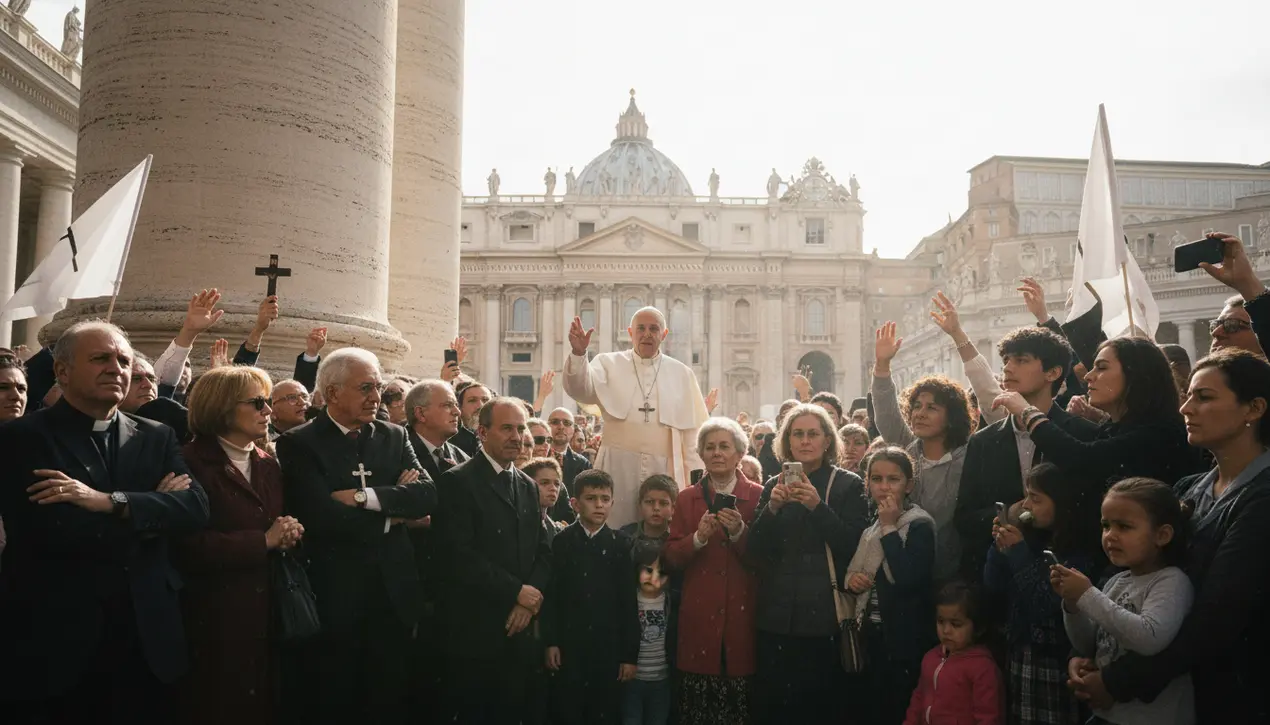
Politicshuman rightsRefugees and Migration
What Americans don’t get about the first US pope
AN
Anna Wright
2 hours ago7 min read2 comments
The election of Pope Leo XIV, the first American pontiff in the history of the Catholic Church, has sent ripples through the global political and religious landscape, presenting a fascinating case study in identity, power, and perception. Hailing from Chicago, Leo XIV communicates with a direct, Midwestern clarity that bypasses the traditional filters of translation, allowing his pronouncements on issues from immigration to artificial intelligence to land with unprecedented force in the American consciousness.This linguistic intimacy has shattered a long-standing dynamic where conservative American Catholics could dismiss papal critiques as the misunderstandings of a distant, foreign leader. The pope’s recent commentary, particularly his sharp questioning of whether support for 'inhuman treatment of immigrants' can be reconciled with a pro-life identity, has been interpreted by many as a direct challenge to the Trump administration's policies.However, to frame this solely as a political spat is to miss the profound theological and historical underpinnings of his stance. For nearly a century, Catholic social teaching, articulated by popes from the decidedly non-liberal Pius XII during the WWII refugee crisis to the present, has been unequivocal on the dignity of the human person, a principle that forms the bedrock of its immigration stance.The current tension is not a departure from doctrine but a collision between that consistent teaching and a domestic political movement, MAGA, whose rhetoric often deliberately dehumanizes migrants. The pope’s focus extends beyond borders to the digital frontier, where his namesake, Leo XIII, grappled with the Industrial Revolution, and he now confronts the AI revolution.His concern is not merely utilitarian—how AI can be used for good or ill—but deeply anthropological, questioning how this technology reshapes our very understanding of humanity and work, echoing the calls for a just wage for 'below-the-line' workers from his predecessor's landmark 1891 encyclical, *Rerum Novarum*. The real story, therefore, is not about an American pope picking a fight with an American president, but about a global institution, led by a pastor who happens to be American, reasserting its core ethical framework in a world increasingly defined by polarization and technological disruption.The struggle within the U. S.Conference of Catholic Bishops, where some conservative prelates must now reckon with a pope who is both their linguistic and theological contemporary, underscores a fundamental realignment. This isn't a temporary squall but a lasting shift, forcing a moment of introspection about authority, solidarity, and what it truly means to be 'pro-life' in an era of complex global challenges.
#Pope Leo XIV
#American Pope
#Catholic Church
#immigration
#AI
#Catholic social teaching
#Vatican
#US politics
#editorial picks news
Stay Informed. Act Smarter.
Get weekly highlights, major headlines, and expert insights — then put your knowledge to work in our live prediction markets.
Related News
Comments
Loading comments...
© 2025 Outpoll Service LTD. All rights reserved.